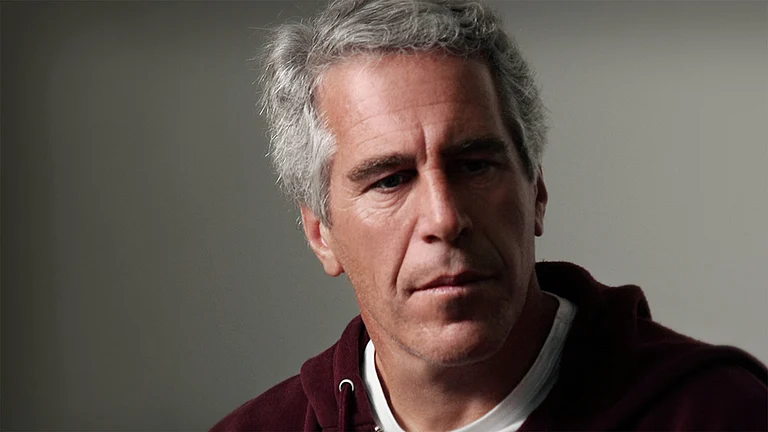AS a series of bomb blasts rocked Russian cities over a week, killing over 300 people, the feeling that the trail leads to the war- torn North Caucasus is gaining hold. On September 16, a truck exploded outside a nine-storey apartment block in the southern city of Volgodonsk, near the volatile mountain region of Dagestan where Russian troops are fighting Islamic rebels. At least 13 people were killed, over 115 injured and many trapped inside the debris.
The biggest strike came on September 9 and 13, when about 210 Muscovites were killed in their sleep as explosives tore into two residential blocks. Days earlier, a blast ripped apart a building in Buinaksk, Dagestan. "Terrorism in Russia has entered a new phase: its come to big cities," says Sergei Solodovnik, research fellow with the Institute of International Relations. "It will continue as long as no solution is found to the problem of Islamic insurgency in Russia."
The third blast was in Moscows outlying dormitory district, in Soviet-era apartment blocks. Most of these 30,000-odd buildings have cellars meant to serve as air-raid shelters. A hasty inspection has been ordered of all such facilities and thousands of police and Interior troops are patrolling streets. The authorities claim theyve already identified two suspects one Denis Saidakov, allegedly linked to the Chechen militants, and another, whod rented a cellar in one of the buildings. They are yet to be detained.
Police got their only real result so far via a tip - off, when they discovered that bags of sugar in a residential block was actually a cache of several hundred kg of explosives.
"The criminals have thrown down a sinister challenge. Te rror has declared war on the Russian people," President Boris Yeltsin said in a TV address, hours after the blast.
But the question on every ones mind is: who are the terrorists? Some feel it is the Islamic militants the Russian forces in Dagestan are trying to suppress. Others say they could be from the Chechnya, where Moscow fought a bloody war in 1994-96 that ended with Russian troops being driven out.
However, Chechen warlord Shamil Basayev as well as Hattab an Islamic militant from Jordan whore currently heading the rebels in Dagestan, were quick to deny any hand in the blasts. "We are fighting regular troops, not peaceful civilians," they said in a joint statement. Sirazdin Ramazanov, self-styled prime minister of Dagestan, also denied a hand, in a statement released via the rebels Internet site. He instead blamed the blasts on battles between Moscows political clans. And even as Moscow debated the various explosion theories last week, its largest circulated daily Moscovsky Komsomolets said the explosions may have been the work of the secret services.
In a new development, three days after the third blast, an organisation calling itself the Dagestan Liberation Army claimed responsibility for the Moscow bombings. A voice with a strong "southern accent" called the official ITAR-TASS news agency in the city saying this was "the response to the bombing by federal troops of peaceful villages in Dagestan and Chechnya".
The events in Dagestan are a throwback to the events in Kashmir early this year. About 2,000 Islamic fighters invaded Dagestan from Chechen territory early August, taking Russian forces by surprise. Given the resemblance to Kargil, India has made it clear that it supports the steps taken by Moscow in Dagestan. This was conveyed to the newly-appointed Russian prime minister Vladimir Putin by Atal Behari Vajpayees principal secretary Brajesh Mishra when Putin made a brief stopover in New Delhi last week.
Putin accused Islamic mercenaries from Pakistan, Afghanistan and Saudi Arabia of contributing to the Dagestan conflict. Some newspapers speculated on the possible "hand of Bin Laden" in the Dagestani events. Terrorism would be the key issue during Indian foreign secretary K. Raghunaths visit to Moscow which began on Thursday. Indian foreign minister Jaswant Singh too advocated a regional security arrangement to counter terrorism at a meeting of the 17-member Conference on interaction and Confidence-building in Central Asia held at Almaty, Kazakhstan last week.
In recent weeks, officials in Moscow have repeatedly claimed to have expelled rebels from their strongholds in Dagestan. However, for the ill-prepared Russian troops flushing out intruders from the mountainous territory proved to be an extremely tough mission. Massive bombing wrought little harm on terrorists. Theres a growing concern among intellectuals here that the conflict, even if the intruders are pulled out of Dagestan this time, will continue for months. And so may the terrorist attacks.

























